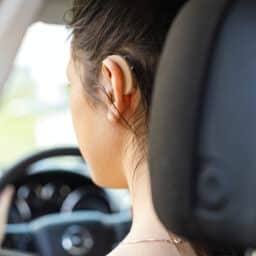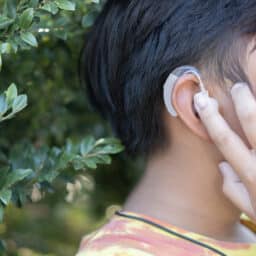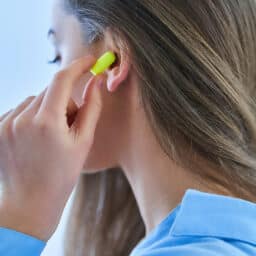Can a Concussion Affect Hearing?
A concussion is a mild traumatic brain injury (TBI) that occurs after a major blow or hit to the head. Upon impact, the brain is bumped inside the skull and hits the sides of the cranium, which can bruise the brain and tear nerve fibers. Any injury to the brain impairs its normal functioning…
How To Make Your Classroom Inclusive for Kids with Hearing Loss
A new school year is underway! We’ve compiled some tips for teachers below to guide you in helping your students with hearing loss this year. Try Specific Communication Strategies When you’re teaching your lessons, pay special mind to the sound of your voice. Short sentences are easier to follow than long ones. Pause frequently when…
Purdue Research Reveals New Connections Between Hearing Loss, Posture and Balance
While previous studies have shown that hearing loss affects balance, new research from Purdue University Audiology Professor Alexander Francis and his colleagues may help further explain the connection. Their study found that postural sway is more noticeable in people with hearing loss, potentially contributing to imbalance and increasing their risk of falling.1 What Is Postural…
Decibels at Home: Surprising Sounds That Can Harm Your Hearing

Decibels (dB) measure the intensity of sound. Anything above 85 dB can begin to damage hearing with prolonged or repeated exposure. The louder the sound, the less time it takes to cause harm. For example, close exposure to noise above 120 dB can cause immediate damage to your hearing. Noise-induced hearing loss is often permanent,…
Feedback Cancellation and Modern Hearing Aids

Previously, a common complaint among hearing aid users was the presence of feedback, or high-pitched whistling noises. This issue could occur during conversations, when hugging someone or even while wearing a hat. Nearly 28.8 million Americans could benefit from using hearing aids. For those people, most hearing aids are now equipped with feedback cancellation systems…
Are You Enabling a Loved One’s Hearing Loss

When someone you love begins to struggle with hearing loss, it’s natural to want to help. You may find yourself repeating things or stepping in to manage conversations on their behalf. While these actions come from a place of care, they can sometimes allow the problem to go unaddressed. Hearing loss is common, with nearly…
Does My Sleeping Position Affect My Ear and Hearing Health?
When we think about ear health, we often focus on things like hearing, noise exposure or infections. But your sleeping position can also have a surprising effect on the comfort of your ears. From ear pain to hearing aid maintenance, how you sleep may play a bigger role than you realize. How Sleeping Impacts Your…
Can Hearing Loss Affect My Ability to Drive

If you or a loved one has hearing loss, you may be wondering how that impacts the ability to drive. While hearing is an important sense for driving, many people with hearing loss continue to drive without issue by ensuring they stay aware of their surroundings. How Hearing Loss Affects Driving Despite driving being a…
Will Warmer Weather Impact My Hearing Aid Performance?

As spring and summer near, hearing aid users may wonder how increased temperatures and humidity may affect their devices. Nearly 28.8 million people could benefit from using hearing aids. Warmer weather can present some challenges for hearing aids, but with proper care, they can still function at their best. How Warm Weather Affects Hearing Aids…
Is Your Home Too Loud? Everyday Noises That Could Be Hurting Your Hearing

Harmful noise levels can exist anywhere, including inside your own home. Understanding how noise impacts your hearing and recognizing potentially harmful sounds in your environment is the first step toward preventing hearing loss and protecting your hearing health. How Hearing Loss Works Hearing loss occurs when the delicate hair cells in the inner ear responsible…
